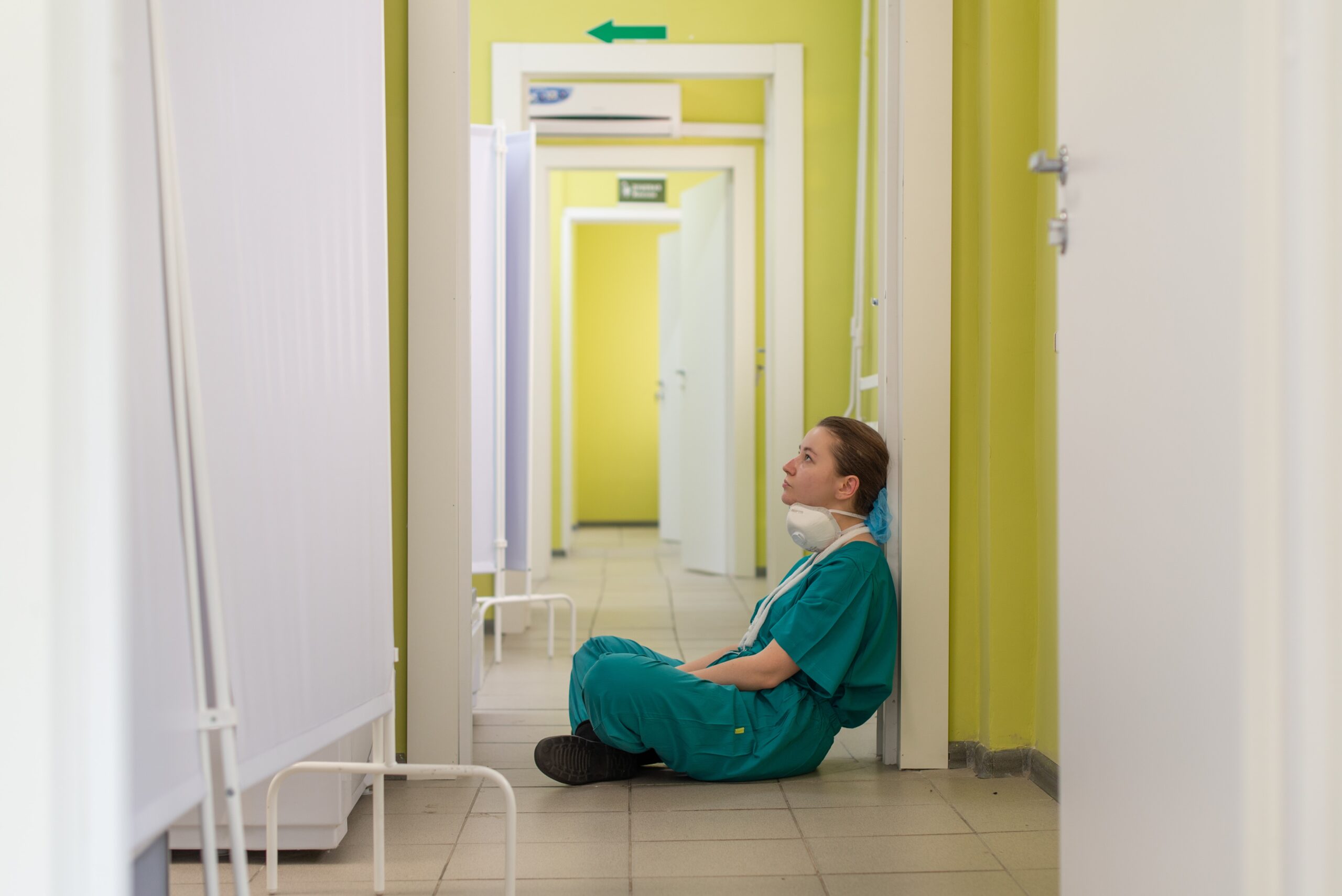
Author: Betsie Sassen, R.N., M.S.N.
The Extent of the Problem
It is a perfect storm. The COVID-19 pandemic struck and eroded an already frail and thin nursing workforce. Nurses left hospitals in droves for many reasons, including fear of contracting COVID-19, challenges with children learning remotely at home, opting for early retirement, alternate employment options (including agency nursing), and burnout. Hospitals had nowhere to turn to staff their beds, so they turned to travelers, overtime, retention bonuses, sign-on bonuses, crisis pay, incentive pay, etc. Out of those options, a popular decision for many nurses was to leave the hospital for agency or travel nursing. Currently, a critical care agency nurse can be billed at $200/hour, which is over $416,000 a year for an $80k position! Before COVID-19, a typical agency contract was two times the average hourly rate of a nurse. Now the agency rates are three to even four times the average hourly rate.
While the third surge of COVID-19 is starting to subside, in most regions of the country, one would think the reliance on agency and the potpourri of premium pay should start to go down as well. But, to add insult to injury, the vaccine mandate that is beginning to be imposed is driving out thousands of nurses and other healthcare workers, and this will continue to fuel the need for agency and premium pay to keep beds open and services intact.
The nursing shortage is likely here to stay, and it was exacerbated by COVID-19 and the vaccine mandates that followed. The question becomes where do we go from here? Agency and exorbitant premium pay are not long-term solutions. Here is what C2 Healthcare is hearing from some of our clients and how we can help.
New Models of Care: Hospitals realize they may never return to “business as usual,” and old and new nursing models are being revisited and explored.
The Team Nursing model is re-emerging. This can include one Registered Nurse, one Licensed Practical Nurse, and one Certified Nursing Assistant to care for a group of 9-12 patients with everyone having specific duties within their scope.
Another model that is emerging is the Virtual Nurse. This model relies on videoconferencing technology. The virtual nurses monitor the unit from a remote center with dedicated devices in each room. The Virtual Nurse is responsible for 18 patients and participates in daily rounds and then is responsible for all communication such as obtaining lab results, reviewing charts, patient discharges, pharmacy, dietary, care management, and anything else that the bedside nurses request. This model currently exists at MercyOne in Des Moines and appears promising and something to keep an eye on.
Stop Gaps
Many challenges such as staffing shortages and the sheer cost of staffing have caused hospitals to close beds, which is never the desired strategy. Several hospitals have resorted to pulling nursing staff from their Clinics and Surgical Areas to work the inpatient nursing units. Not only does this fill a critical need, but it fills it at less cost. Hospitals are also pulling nurses with active licenses from Case Management, Education, and other areas to help with patient care. Sign-on bonuses, crisis pay, and retention bonuses have also been popular to attract and retain staff.
Additionally, hospitals are creating their own In-House Contracts where staff are obligated to work 8-10 shifts per pay period and receive an attractive incentive in addition to their base rate. That incentive amount increases for the night shift and weekends. While these In House Contracts are very expensive, it has helped some hospitals keep Agency nurses out, which is far more costly.
Hospitals Need to Reach “Peak Performance” Now More Than Ever
Whether it is a new Model of Care or creative Stop Gaps, hospitals need to become increasingly agile with the ability to adapt to long-term challenges. To emerge out of this crisis, hospitals will have to operate at high efficiency (“top of the license”), pay overly competitive rates, and provide high octane Quality and Service. The solution we are implementing is Peak Performance!
C2 Healthcare can help. We have an unrivaled history of relationships and best practices for every hospital and practical management training and tools to help your front-line staff manage at their Peak!